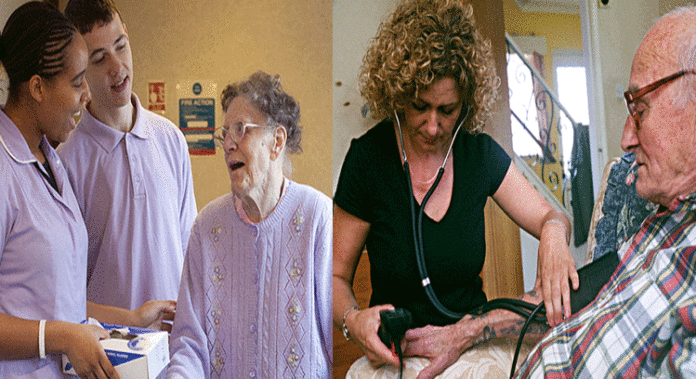
THE NPC believes that one of the greatest issues facing both the older population, and the country as a whole at the General Election, is that of the crisis in social care.
Given that the three main English parties have now all published their manifestos, it is possible to compare their proposals and offer an initial analysis.
Conservative Manifesto
• Everyone who has property and assets worth more than £100,000 will pay for their home care. This is a change to the existing rules, whereby in England property values are disregarded and those with separate assets over £23,250 have to pay towards their care at home. Under this change, someone needing an hour a day’s care will pay an extra £140 a week. The number who will be paying more under this proposal is estimated at around 250,000-500,000.
• Those in a care home with property and assets worth more than £100,000 will have to pay until the value these assets fall to £100,000. At the moment, everyone with property and assets worth more than £23,250 has to pay the full cost of their care until their wealth drops below this level. However, anyone who owns their own home (average house prices in England stand at £217,000) will still have to pay and many will need to sell their homes after they die to pay for the care costs that they have deferred during their lifetime. The number affected by this proposal is estimated at around 75,000.
• Whilst the party has yet to declare how much money this proposal would raise or cost, the Conservatives have stated that money raised by scrapping the state pension triple lock in 2020 and means-testing the winter fuel allowance (only giving it to those defined as living in fuel poverty) will go towards funding social care in the future.
Labour Manifesto
• Labour plans to maintain the current home care arrangements, that mean in England property values are disregarded and those with separate assets over £23,250 have to pay towards their care at home.
• The Labour manifesto calls for a cap on care home costs, which is currently what has been legislated for under the Health and Social Care Act 2014 and is due to come into force in 2020. This means anyone with property and assets over £118,000 will have to pay up to £72,000 towards their care, but will then have the rest funded by the state. In addition, they will still have to pay an annual accommodation cost of around £12,000.
• In the long-term, Labour aims to create a National Care Service for England and secure long-term funding for the service through policies such as wealth taxes, an employer care contribution or a new social care levy.
Lib Dem Manifesto
• The Lib Dem manifesto does not suggest any changes to the current home care arrangements, in the same way as Labour.
• Again like Labour, they support a cap on care home costs, which is currently what has been legislated for under the Health and Social Care Act 2014 and is due to come into force in 2020. This means anyone with property and assets over £118,000 will have to pay up to £72,000 towards their care, but will then have the rest funded by the state. In addition, they will still have to pay an annual accommodation cost of around £12,000.
• In the long-term, the Lib Dems aim to introduce a hypothecated tax for health and social care (possibly based on National Insurance) and to establish a cross-party convention to look at long-term future of health and social care services.
OVERALL NPC ANALYSIS
It is fair to say that no-one saw the Conservative proposal coming – and as such it took most commentators and experts completely by surprise. Essentially, they have abandoned the legislation that they put through in 2014 to introduce a cap on care costs of £72,000 and instead put forward the idea that everyone in a care home will get to keep £100,000 worth of assets. This is obviously not as generous as the original legislation envisaged.
Furthermore, the claim that people will not have to sell their homes during their lifetime in order to pay for care is really the same idea put forward by Labour’s Andy Burnham in 2015 – which at the time the Conservatives branded the “death tax”. What makes it different is that Burnham was suggesting the estate would pay 15% towards care fees, whereas the Conservatives are suggesting considerably more.
An even greater change to the current system is the Conservative plan to include property values in the charging of care at home. Almost overnight this will mean everyone who owns a property and requires care at home will have to pay.
At the heart of the Conservative’s proposal is the idea that it is unfair to ask younger generations to fund the care of older people. Yet there has never been any suggestion that pensioners who pay tax shouldn’t do so because it goes to families with young children.
There is no doubt that the proposal is less generous than the Health and Social Care Act 2014 promises for 2020. Many more pensioners receiving care at home will now have to pay, and those in care will still face huge bills and have to sell their homes in order to meet the costs.








